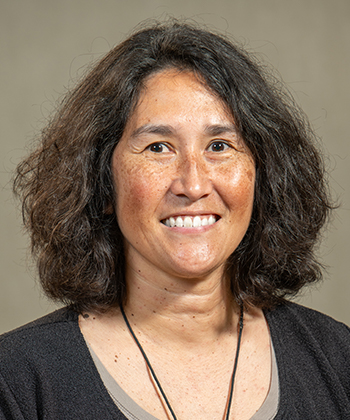
Chair, Engineering Department
Ph.D., Mechanical Engineering, University of Michigan
School of Science and Engineering
(440) 826-2222, admission@bw.edu
Today's complex, interconnected world needs engineers that can apply science, mathematics and design skills to finding solutions that connect with the human, cultural and environmental aspects of society.
Baldwin Wallace's Bachelor of Science engineering program is a broad-based study that combines the rigor of science, mathematics and computing with the communication and creative problem-solving skills of a liberal arts-focused education.
You'll learn to think critically, communicate effectively and gain a globally informed perspective you can apply to solving a wide range of engineering problems and more.
Small class sizes and individual attention are inherent to the program. Coupled with comprehensive coursework and extensive laboratory experiences, you'll receive outstanding preparation for employment or for postgraduate studies.
Independent research projects, off-campus experiences and internships allow you to customize your studies. Supportive faculty assist you in career preparation through mentoring, networking and more.
This major prepares you for graduate school in a specialized area of engineering and immediate career opportunities, such as:
BW's engineering curriculum provides a strong background in engineering fundamentals, with an emphasis in the underlying mathematics, computing and basic sciences. View the four-year curriculum plan for engineering students. Note that this four-year plan is based on students beginning their foundation courses within the major during their first semester at BW. Completion of an engineering degree in four years at BW depends upon placement into the following foundational courses: MTH 140 (precalculus) or higher the first semester of the student’s first year at BW.
During the onboarding process, students will have the option of submitting ACT/SAT test scores or taking an Accuplacer test for course placement. Placement into the aforementioned foundational courses requires an ACT math sub-score of 23 or higher, SAT math sub-score of 560 or higher, or an Accuplacer score of 70 or higher. Students who do not place into the engineering foundational courses will initially begin preparatory courses within the engineering major before qualifying to begin their foundational courses.
The curriculum includes a broad range of courses in engineering and related fields that focus on applying your technical knowledge to design challenges.
In the first semester, you'll work on a design project that immerses you in the practice of engineering. During senior year, you'll engage in a two-semester capstone project that provides you with real-world learning in identifying, formulating, solving and summarizing results for an engineering problem that has meaningful impact.
The curriculum's flexible format enables you to take a semester to study abroad, complete an internship, co-op or other work-related experience, or pursue other off-campus experiential learning opportunities.
You also can complete additional coursework in related areas of the science, mathematics and computing curriculum.
Graduates from the Baldwin Wallace University engineering program will:
BW engineering graduates will have an ability to:
In addition to the engineering major, BW offers a pre-engineering dual-degree program in chemistry or physics.
An optional five year B.S./MBA program combines BW's engineering major with a minor in business administration and an MBA degree.
At BW, student success is a top priority. You'll be encouraged to work with a partner company for research and apply for internship and research positions.
Experiential learning bridges classroom study with real-world opportunities. You can enhance your studies through learning opportunities that include:
BW students who wish to pursue research enjoy significant responsibility and can get exceptional access to laboratories, equipment and faculty.
Independent study offers enrichment opportunities beyond the classroom for individualized and advanced study. Students work one-on-one with a faculty member.
The fabrication lab allows engineering students to design, prototype and build real-world projects with regional industry and government partners.
The maker space is equipped with advanced design software, 3D-printers, a large-capacity printer-plotter and a laser cutter; it can serve as a design and prototyping space or as a building space for smaller projects.
The thermodynamics and fluids laboratory allows engineering students to study thermo-fluid phenomena including heat transfer, thermodynamics, fluid dynamics and mass transfer in complex systems.
The mechanics and materials laboratory allows students to test and evaluate essential mechanical properties of a range of materials, including metals, plastics, composite and anatomical materials like bone.
The sensors and controls laboratory provides students the opportunity to design and fabricate smart technologies for a range of applications.
BW's proximity to Cleveland puts you within a 20-minute drive to outstanding opportunities. Summer internships are available in local industries and research labs. National internships are also available.
The BW Choose Ohio First STEM Scholars Program is open to Ohio residents who are entering Baldwin Wallace in the fall as a first-year student or transfer student and are interested in engineering. Students are eligible to apply to the program which also offers the Choose Ohio First scholarship, awarding substantial annual, renewable scholarships.
Personally and professionally rewarding, student organizations and activities foster career skills, leadership and teamwork. Opportunities include:
The Engineering Club promotes engineering among the student body and provides a common organization for engineering majors to interact, work on projects and extend their influence into the surrounding community.
The Student Affiliates of the American Chemical Society helps chemistry majors explore opportunities in the field.
This group hosts competitions and promotes the advancement of problem-solving skills at BW and in the community.
Jennifer Kadlowec
Chair, Engineering Department
Professor of Engineering
Ph.D., University of Michigan
Peter L. Hoekje
Chair, Department of Physics
Associate Professor of Physics
Ph.D., Case Western Reserve University
Jeff Dusek
Associate Professor of Engineering
Ph.D., Massachusetts Institute of Technology
Jonathon Fagert
Assistant Professor of Engineering
Ph.D, Carnegie Mellon University
Helen Muga
Associate Professor of Engineering
Ph.D., Michigan Technological University